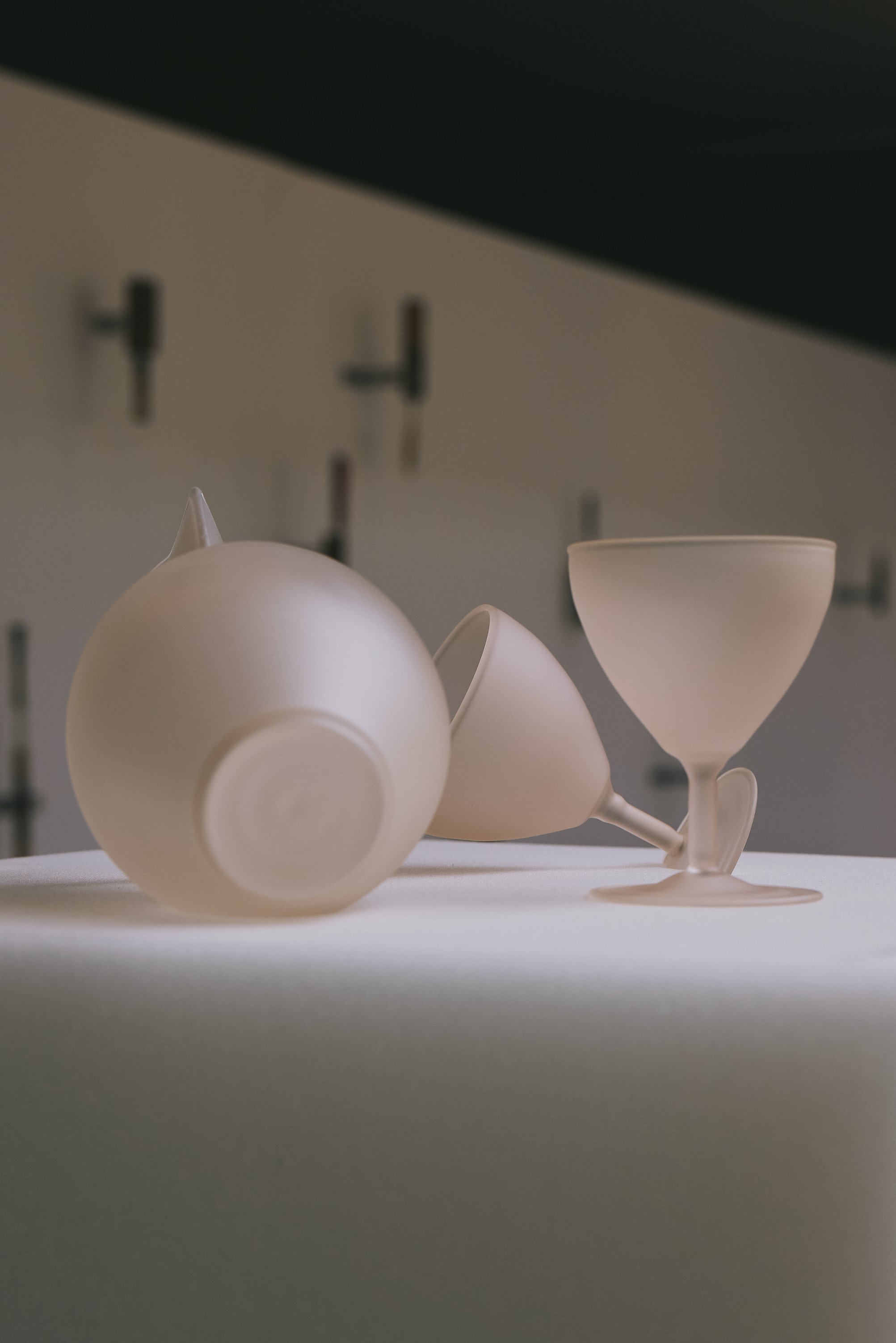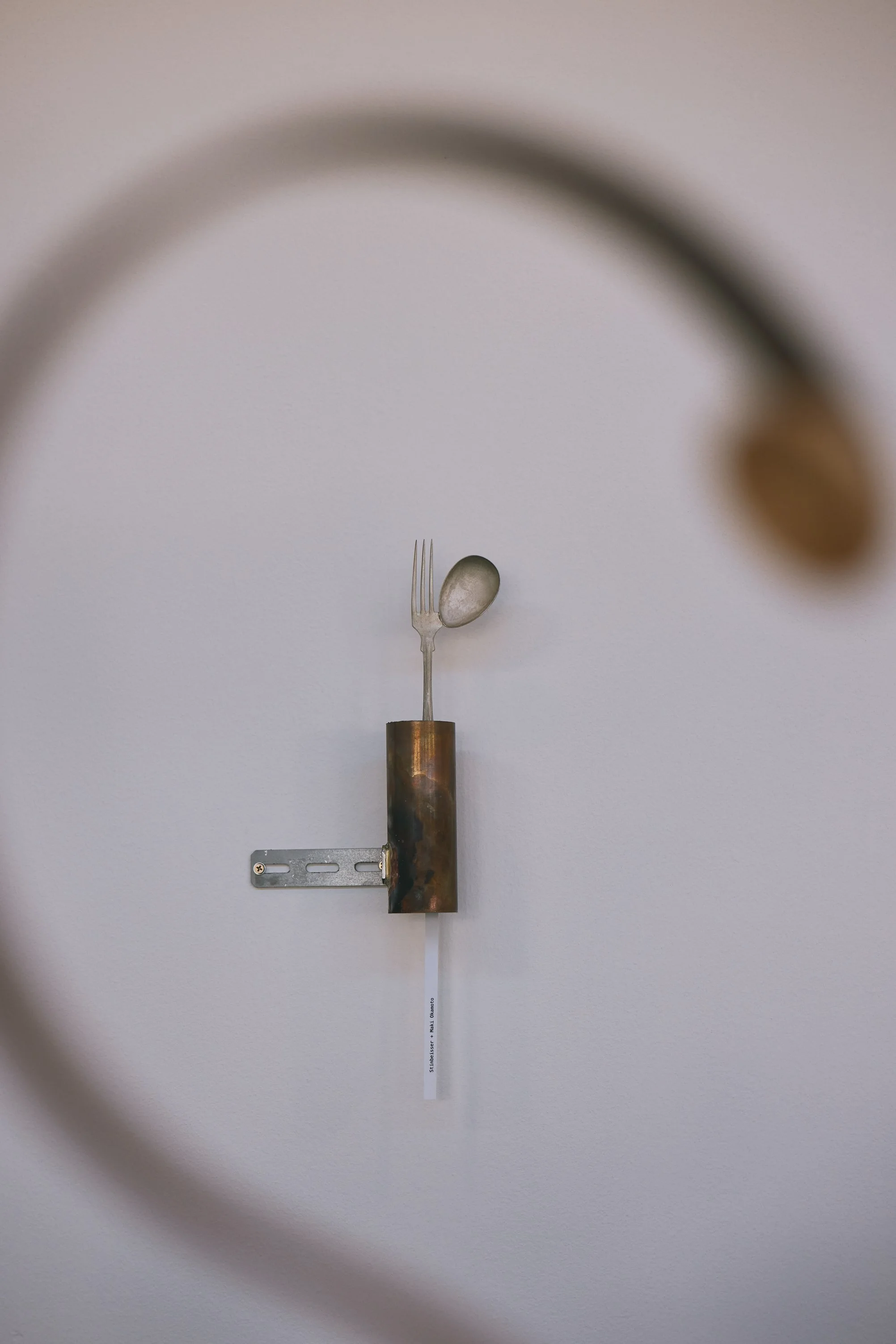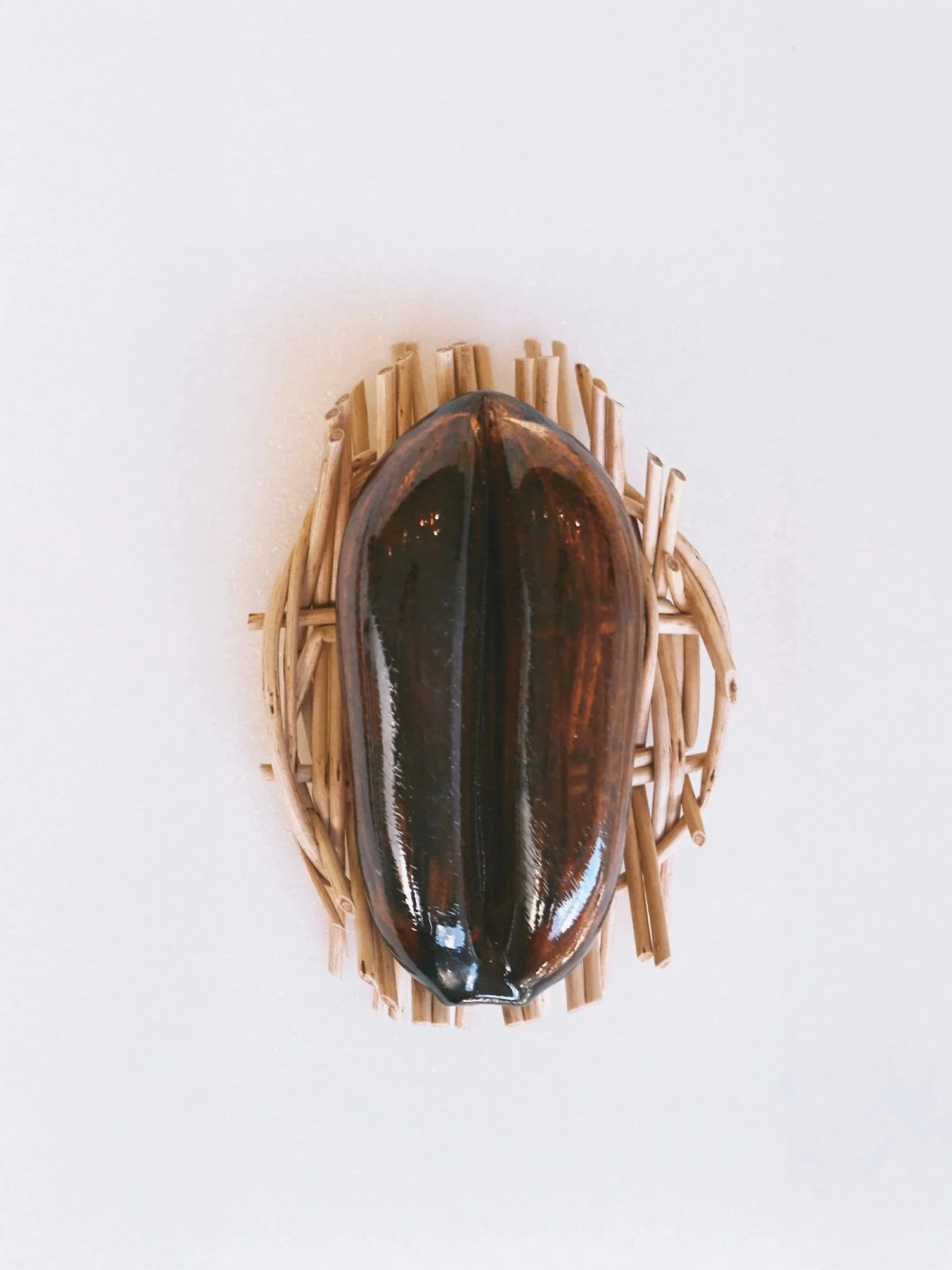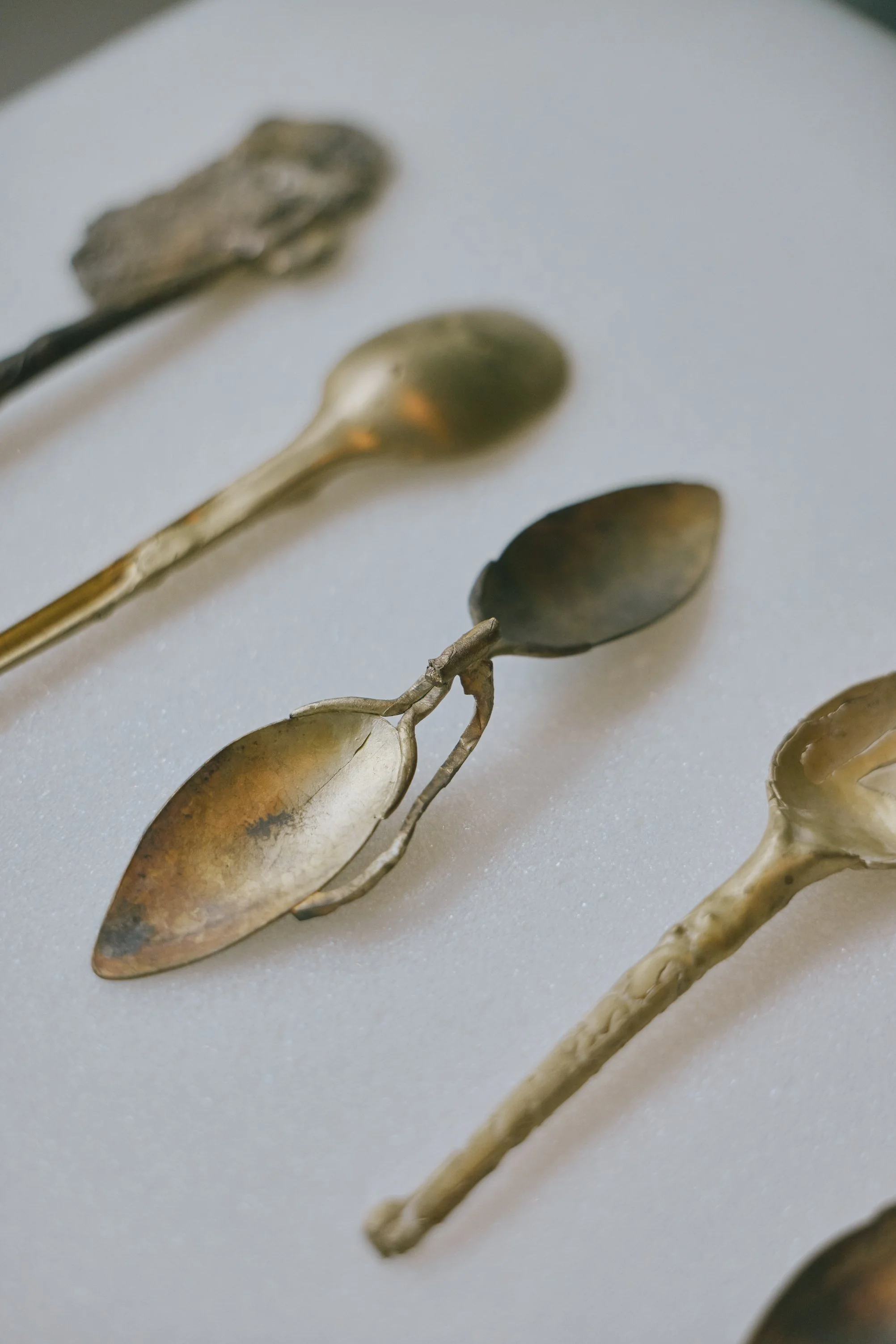Other Ways of Remaining: Craft, Memory, and Design
Tiempo + Materia at Valencia Design Fest 2025
Craft as Continuity
Every crafted object holds more than its material. A carved spoon, a hand-thrown pot, a woven textile — all preserve gestures, rituals, and values that reach beyond their immediate use. They remind us that permanence does not mean immobility; it means the capacity of culture to adapt, evolve, and reshape in new contexts.
Craft also reminds us that making is never only about function or aesthetics; it is about identity, belonging, and the transmission of knowledge. A hand-shaped object carries the rhythm of its maker, embedding gestures and touch into material form. Unlike mass-produced items, crafted works embody slowness, attention, and a relationship between maker and material.
Valencia as Context
Valencia, a Mediterranean city on Spain’s eastern coast, offers a fitting stage for this reflection. Celebrated as World Design Capital in 2022, the city has long been shaped by industrial production while remaining deeply rooted in artisanal heritage. Its ceramics, textiles, and woodworking traditions coexist with a forward-looking design culture, making it an ideal place to examine the intersections of past and present.
The Valencia Design Fest 2025 builds on this dual identity. For a month, the city becomes an open platform for exhibitions, talks, and workshops that invite local and international voices to reflect on how design shapes culture and society. Within this programme, the third edition of Tiempo + Materia stands out as one of the most critical explorations of craft and its role in contemporary design.
Other Ways of Remaining
Tiempo + Materia was created in 2022 by Estudio Savage, the creative studio led by Adrián Salvador and Lucas Zaragosí, as part of the Valencia Design Fest. From the beginning, its purpose was not simply to make craft visible, but to rethink its boundaries: to consider what craft means today and how it can remain relevant within a design culture still shaped by industrial and digital production. Each edition has expanded this reflection, positioning craft as a dynamic, experimental, and necessary discipline.
The third edition, Otras formas de permanecer (Other Ways of Remaining), continues this trajectory by shifting attention from the object to the intangible. It asks: what remains when material form disappears?
Curated as an exhibition, a programme of talks, and interactive encounters, this edition suggests that permanence is not only about objects that endure but also about practices that connect us to place and community. To explore this, the curators turn to one of the most universal yet culturally specific settings: gathering around the table.
The Table as a Medium
The table is more than an object; it is a stage where nourishment and exchange take place. Around it, food, conversation, and ritual converge in ways that feel ordinary yet carry depth. What seems simple can become a vessel of memory. Design here is inseparable from the senses: the fragrance of herbs, the colour of ripe fruit, the curve of a plate, the warmth of a dish. These impressions work quietly, often unnoticed, yet they endure, becoming part of how culture is transmitted — not only through objects, but through experiences that remain with us.
This sensorial dimension is echoed in projects such as Steinbeisser’s Experimental Gastronomy, where avant-garde utensils challenge eating habits and highlight how design mediates behaviour, taste, and perception. All of Steinbeisser’s meals are plant-based and sourced from local biodynamic farmers, who cultivate the land using holistic methods that prioritise soil health, biodiversity, and ecological balance. For each event, Steinbeisser invites designers and artisans to create unconventional utensils and vessels — part functional tools, part art pieces — that defy the ease of everyday use. Diners are compelled to reconsider gestures as fundamental as holding a fork or raising a glass, transforming the act of eating into an exercise in awareness. These settings often generate unexpected intimacy: strangers negotiate how to share food, how to serve one another, how to interact through the most elemental and personal of acts — eating together.
The pieces created for these experiences are presented in Tiempo + Materia, alongside works by Fondosupperclub, Vivian Alarcón, Casa Antillón, Júlia Esqué, Frama, Maki Okamoto, Worn Studio, Los Objetos Decorativos, Canoa Lab, and Vicent Orts. Together, they extend craftsmanship into performance, gastronomy, architecture, and even biotechnology.
A Counterbalance
Tiempo + Materia reminds us that craftsmanship is not rooted in nostalgia; it is alive in the present, reshaped with each generation. Its significance lies not only in what is made, but in how it engages us. A handcrafted object or a shared ritual communicates through more than sight — it resonates through textures, rhythms, aromas, and gestures that linger long after the material has faded.
By framing craft as both material and immaterial, Tiempo + Materia shows that design is never purely visual or functional. It is multisensory and cultural — a practice in which continuity is carried through memory, sensation, and collective experience. This perspective challenges us to see resilience in design not merely as technological innovation, but as the capacity to create meanings that endure.
Credits
Tiempo + Materia is a project curated by Estudio Savage in collaboration with the Fundació del Disseny de la Comunitat Valenciana, presented within the framework of the Valencia Design Fest. Running from September to October 2025, the initiative includes an exhibition, talks, and parallel experiences.
The exhibition TIEMPO + MATERIA (3) will be on view at the Museu Valencià de la Il·lustració i de la Modernitat until 12 October.
Estudio Savage
https://www.estudiosavage.es/
@estudiosavage
La Fundació del Disseny de la Comunitat Valenciana
https://fundaciodisseny.com/val/inici/
@fundaciodisseny
Valencia Design Fest
https://valenciadesignfest.com/
@valenciadesignfest
Museu Valencià de la Il·lustració i de la Modernitat (MuVIM)
http://www.muvim.es/
@muvim.es
Barreira Arte + Diseño
https://barreira.edu.es/
@barreira_arte_y_diseno
Exhibition Participants
Fondosupperclub
Vivian Alarcón
Casa Antillón
Carla Souto
Júlia Esqué
Frama
Steinbeisser
Sophie Hanagarth
Florian Clemens Meier
Maki Okamoto
Eija Mustonen
Nils Hint
Jaydan Moore
Agnes Kelm
Worn Studio
08Room
Aléa Work & Julie Brugier
Los Objetos Decorativos
Alice Heron
Canoa Lab
Cuit
Carles Tarrasó Oliver
Arcos – Albacete 1734
Florentine Kitchen Knives
Vicent Orts
Nom.object
Marta Ayala Herrera Studio
De Bigot Enrotllat
Alejandra Perini + Jonas Villiger
Octavio Barrera + Iván Montero
Pere Canales + Clàudia Ros + Aitana Soliva
Jordi Veciana
Shay Nifusi
Oded Webman
Skye Maunsell Studio
Words
Nina Zulian









